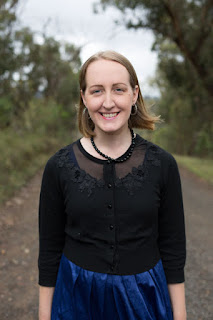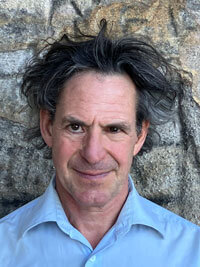Deep Breath
You’ve really let yourself go
inside this vanity trap where we
need to wear cyber labels
to decode our hands right from left
so we’ll have somewhere better
to land than backwards. Never try to
control a control freak, especially a
robot urging himself into human guise
for some Promised Land. Because we’re
all organs on a preordained menu for
unwed diners outside a conjured escape
capsule. There’s something wrong
when no one else but you are breath-
ing, as you wonder what flirting has
to do with spontaneous regeneration.
Under the Lake
Ghosts? Never met one I couldn’t tame,
until now. Just say boo from behind
your sonic sunglasses and they
dissolve – or do they? But no, these
cosmic sailors hover, persistent,< br/> curious, even. Who’s in charge?
(I need to know which one I can ignore)
Meanwhile, everyone’s abandoning
ship, or falling softly into death.
They can pass through walls, locked
doors, even Clara’s holographic double,
whispering the dark, the sound, the
forsaken temple, rewinding past, through
dark space from Orion’s Nebula. I need maps,
precise coordinates to frame their positions,
a suspended animation chamber to see
how the slain relearn to hum, transmit
via some Puppeteer’s impossible magnet.
But then the flood, and Clara has to
trust me to teleport without the Tardis
and come back, ghost-free, to her
somehow.
The Return of Dr Mysterio
What do I have in common with Clark Kent?
Certainly not his love of skin-tight threads, but yes
keeping a phone box handy for the first threat
of danger, and being on call 24/7 to buffer
humans, especially page turning companions,
despite their impulse to hug him or me
at the drop of an alien. Save is just what we
freelancers do without bronzing or vows.
During a pause, I was trying to power up
a time distortion equaliser thingy with a Hazandra
gemstone, when young boy Grant swallowed it
and developed a persistent case of levitation,
a capital G, and a blue rubber speed handy
24 years on to sidestep his part-time nanny
job for high school sweetheart Lucy
(read Lois Lane). Tagged the Ghost because
all the better comics names had been branded,
he was super as a backstop brake for a spaceship
with nukes cross-haired at NYC. I could
have snagged it myself, but I was missing Clara
and River Song, it was Christmas again,
and everyone deserves a happy
reboot after a sad
ending.
The Woman Who Fell to Earth
Once you learn how to tumble
from a bike you never forget.
Bad timing: I was in mid-transform
from my grey-haired Scottish
skin (bless his sexy drawl!)
bracing for my train roof grand
entry, no time to muck about
with who I am or was or should be
though I do have this niggling
yearn for a certain runaway police-
box especially as I confront the data
coil of this flying spaghetti monster.
Have I ever tasted a Hersey’s Kiss?
Does it really matter as carriages uncouple
and Tzim-Sha can zap us at will?
I do prefer the height-thrill of cranes
to the afterburn of virtual chocolate
as I blowtorch a fresh sonic screwdriver
from random scraps of metal. Damn
those budget cuts! We can do so much
better than purloined teeth for trophies.
Yes, always be kind!
999.1
Ticking boxes: ‘is he still conscious?
When did his #chest pains, shortness of breath, begin?
Please secure all dogs & attack guinea pigs.’
999.2
In situ: ‘you say your father died of a #heart attack?
Have you ever smoked?’ Passive counts.
As my pain tightens… #regeneration coming on?
999.3
‘Please scale your #pain from 1 to 10.
We sustain for the EW – no exits on our watch.
Name, date of birth, allergies – best to memorise.’
999.4
Drugs, glorious drugs! please Mr Para
may I have some more? Mr #Morphine and I
have never played tag, until now…
4D Print from the #Tardis
#Dr Who at the EW shapeshifts for the transfer,
blue jab in my bowels, #centrifuge of max focus
betrayed by a tease of dancing lights.
After the Kangaroo had solidified ever so slightly from his normal holographic state to bid the Crew a farewell that Tiger the cat took to be almost fond, if not teary, before fading into the darkness, it was pitch dark at Uluru save for the pin-pricks of light overhead that were stars, and only stars, or so Tiger hoped.
He felt the fur stiffen on the back of his neck. ‘Do you suppose Mick will be back?’ he asked no one in particular, hoping that anyone who had an answer would chime in.
‘Weren’t you listening?’ snapped Tark, the extra-terrestrial from the Planet Griffon disguised as a frog so as not to call too much attention to himself. ‘I already answered that question!’
‘Yes,’ sniffed Tiger. ‘But I hoped if I asked again that I’d like the answer more this time!’
Wanda the Blue-tongue Lizard stuck out her tongue, more to test the night air, than to make fun of Tiger’s twitchy question. ‘It would have been fair enough to ask again,’ she said, ‘if you hadn’t had the first answer less than two minutes ago!’
Number 12, the now-almost-completely-retired-racing-camel, rapped each of his left hooves in turn against its right number to free it from a clog of sand before clearing his throat to speak. ‘While it’s true Tiger just asked the question, he did it at the end of Tiger Tames the Min Min, which for us may have been five minutes ago, but this is a new story entirely, and I believe that it took its author quite some months to write.’
‘You don’t know that,’ piped in Syd the crow. ‘It might end up very much the same story, or no story at all if the writer doesn’t get a move on.’
‘Writer?’ Tark demanded. ‘What writer?’
Number 12 snorted. ‘The one who left us standing here in the cold night air for more than a year now pretending that it was five minutes, while he went off to do… other things.’
‘Alexander’s like that,’ Tiger nodded. ‘When he’s working on one of his feature articles, he forgets to eat sometimes. Which is OK, except when he forgets to feed me.’
‘Well, you’ll have plenty of time to remind him,’ said Tark, ‘when we get back to base.’
‘Oh, goody,’ cried Tiger. ‘You mean we can go home at last?’
‘I reckon we’ve earned some R & R,’ said Tark. ‘Besides, Prince and Eudora will want a full update on Mick and his nasty starships. Before they tell us where we’re going next.’
Number 12 anticipated Tiger’s question. ‘Rest and relaxation – that’s R & R. What I was planning to get lots of, before you detoured me out of retirement!’
‘Count this lizard out!’ snapped Wanda. ‘First you drag us up the east coast of Australia to the pointy Top End of Queensland. Then across the Simpson Desert to Uluru. With just a slight change of pace to plug that burst oil well. Ducking Min Min Lights all the way. I do believe that I’ve served my time!’
‘And done it very well,’ Tark said, pouring it on like thickened cream. ‘Where would we have been without Judge Wanda?’
‘Oh, go on,’ Wanda said, her skin going ever so slightly sunset red despite its stubborn greenish black. ‘Any native creature would have done the same in my place!’
‘You can never take a compliment,’ tittered Syd. ‘But if you’ve got a better offer than saving the Earth and our fellow creatures, Wanda, just say so. I’m sure there are others who’ll gladly take your place!’
Wanda eyed Syd. ‘Once a scavenger, always a scavenger. I suppose I’ll have to see it through – if only to keep you in line.’
Syd winked at Tiger. ‘That’s settled, then. Though Judge Syd could have a nice ring about it!’
‘What about you?’ Tark asked Number 12. ‘Are you game for the next phase of Project Earth-mend?’
Number 12 managed a smile as much as any camel – ex-racing or otherwise – could. ‘My race against the emus brought it all back – the thrill. I can’t see myself moping around a paddock all day, flicking away blowflies day in and day out. Sign me up!’
‘And I’m certainly keen!’ Tiger chimed in. ‘After all, what’s an adventure without a leader?’
‘Excuse me, Earthling,’ Tark snapped, stretching his magic toe. ‘Who’s in charge here?’
Tiger gulped, eying Tark’s toe, which was already glowing an eerie green with just a hint of blood red in it. ‘Um, I meant to say deputy leader.’
‘Of course you did,’ Tark said, more kindly, while his toe faded back to its normal frog-like hue. ‘Now we must all teleport back to the Sacred Pool for further instructions.’
‘The Sacred Pool?’ said Number 12. ‘Is that some kind of oasis?’
Wanda laughed. ‘It’s in Canberra, the watering hole for most of Australia’s politicians!’
‘Oh,’ said Number 12, deflated. ‘I’ve never met a politician before. But I hear you can’t trust them as far as you can buck them.’
‘That’s not entirely true,’ said Tiger. ‘The previous Prime Minister was rather fond of Myrtle’s Greenhouse Ginger Cheesecake, so it was a snap to sign him up for Project Earth-mend. He’s still onside, but I don’t know about the one we have now.’
Wanda shook her head. ‘Myrtle will take care of him, or her, if it ever comes to that again. Wait and see!’
‘We won’t have to wait long,’ Tark said, tilting his head toward the sky as if a transmission was coming in. ‘Prince wants us to report back, pronto.’
‘But Canberra’s days away from here,’ sighed Number 12. ‘Even if we keep up a steady trot. And do the politicians even allow camels there?’
‘Of course they do,’ said Wanda, sounding very much like Judge Wanda again. ‘If not, I’ll have the law changed!’
‘T-thanks,’ said Number 12. ‘I suppose I could take a bath in tea-tree oil, or something.’
Tiger had never heard of tea-trees, let alone their oil. It sounded rather disgusting if it had to be licked off afterwards.
‘Walking is so twentieth century,’ Syd said. ‘Even if we went as the crow flies – meaning me – it still would take more than a day to get there.’
‘Have finger, will travel,’ Tark reminded them. ‘Ready for teleportation?’
Juan was thinking about the toy gun made of plastic that his father bought him for his birthday. It was a huge green pistol that Juan could fill with water and it would reach enough to wet all the children in the neighborhood. Just one squeeze of the trigger was enough to shoot a torrent of water that reached the other side of the street. Juan knew very well that this was not a firearm.
Juan’s father had a firearm in his house. Juan knew about this gun because on one occasion (when he was supposed to be asleep) he overheard his parents talking about the gun.
—I want you to get rid of that firearm, his mother told him.
To which his father replied, “I can’t.”
“But it scares me,” she stated.
And he replied, “There’s no need to be scared, he’s in a
safe place.”
“I know exactly where it is,” his mother insisted.
And he replied, “Of course, between you and me we have no secrets.
Juan lay in his bed and thought about his father’s gun. If only I could see her, he thought to himself. Even if it’s only once. Well, first, he would have to find her.
Read more on Google Booksearch
or on Google Play

































IP (Interactive Publications Pty Ltd)
At one level, David Reiter’s My Planets is extremely complex (verse, prose poems, autobiography, short fiction, photographs, etc.), but at another it is quite simple. The author, a Jewish only child, at the age of 50 with both his adoptive parents dad suddenly discovers his birth mother, Eileen, and that he is in fact the eldest of seven across the combined families of his genetic parents.
In common with the memoirs of many of other adoptees, Reiter’s also brings out the insecurity the process almost necessarily involves – and the long-standing question, “Why was I given up?” Luckily, Reiter’s adoptive parents were by-and-large supportive, though the death of his father when Reiter was only 11 was clearly a setback.
Reiter grew up in one of the poorer areas of Cleveland, Ohio, where he seems to have been one of the very few white kids in a black neighbourhood. A further isolation was that there were very few Jews in the suburb. His frustrations in this context and well brought out and there is a child-like envy of some of his (adoptive) relatives who live in the richer, white part of town. Reiter’s treatment of this early part of his life is almost a bilungsroman, albeit told in fragments.
What is equally remarkable, however, is the author’s more difficult attempt to capture the life and personality of the birth parents he never knew when young. The social context in the United States cities at the end of World War II is graphically brought out, including the sexual recklessness of the time and the psychological damage experienced by veterans, even by those who (like Reiter’s birth father) didn’t see combat. In prose sections like “What a Girl’s Got to Do” and “Dancing Sinatra”, Reiter very convincingly recreates a sense of a woman who is drawn to sexual adventure and who feels that a more luminous fate should await her than her circumstances allow. It’s hard to know how much of this material Reiter heard directly from his mother after he met her again and how much he fictionalised from the raw data his birth family must have supplied after the reunion. In either case, it’s done with both an understanding of the times and considerable empathy and affection.
Some readers may wonder why the book is so consciously fragmented and perhaps why Reiter has arranged his material in terms of the planets of our solar system (and the classical myths associated with them). A part explanation might be that the materials of his book are either remembered in fragments or came to him later in that manner.
Another, perhaps, is to give the story of his early life (and those of his relatives, biological and adoptive) a wider resonance, to place himself and them in more universal context. Some may consider the dramatic monologues spoken by some of the planets as distractions from the “real” story but, as Reiter’s concise outlines of some of their associated myths implies, our human behaviours are often influenced by factors well beyond our own knowledge and/or control (including the eternal patterns of mythology).
My Planets is also available from the publisher as an enhanced eBook, which pushes the fragmentation principle even further by adding more images, sound, music and film.”
– Geoff Page, The Canberra Times
IP (Interactive Publications Pty Ltd)
“David Reiter’s provocative fictional multimedia memoir combines a textual narrative with a rich tapestry of audio, video and animation to explore the meaning of family, connectivity and identity. The planets provide both a narrative structure and a shifting series of perspectives asking not just how we understand who we are, but how that story shifts with different sets of eyes. This is a profound digital narrative which both makes the most of the various possibilities of the digital realm whilst weaving a provocative, engaging and all too human tale.”
– Judges’ Report, WA Premier’s Book Awards
IP (Interactive Publications Pty Ltd)
“David Reiter subtitles his latest book ‘a fictive memoire’, which is an essentially contradictary term and at the same time complementary. If ‘fictive’ is make-believe and ‘memoire’ is autobiography, where do the two come together?
In My Planets Reiter weaves memories of his own upbringing as a white Jewish boy in an American inner-city, with present-day musings of a fifty year-old American Australian who has just found his birth mother after his adoptive parents have died. These stories, presumably, are true. He also gives a third-person account of his birth mother’s and father’s memories. These, presumably, are not. And I’m not saying that they are false, it’s just that one cannot write about one’s conception from the points of view of the lovers without using a bit of imagination. After Reiter’s father recounts his nightmares of fighting Nazi soldiers in the war, he writes:
The real moon came out from behind a cloud just then, and he looked so pale to her, like an abandoned child. She eased down, covered him with her body. (26)
This has to be imagined. And it is beautifully imagined. These were my favourite passages in the book.
The book is divided into nine parts, each given the title of a planet. This works as a structural link to the psyche of Reiter who, as a child, always felt he didn’t quite belong and must have come from outer space and who, as an adult, lives on the other side of the world from where he was born, seeing a whole new set of stars. Each first chapter of each part is told in the voice of the specific planet so each planet, too, has a story to tell. This suggests that stories are both ancient and endless, and no particular story carries any more weight than the next. I love the writing of the planets and think them a clever strand for Reiter to work with, but conceptually I think it has been taken too far: the book’s title, its cover, the black and white photographs of the solar system throughout the book. Too much ‘planets’.
Alongside crossing over from fiction to memoire, from first person to third person narration and from human to inanimate narrator, Reiter also plays with form. He weaves poetry into prose, and some memories bear both of those titles. This seems a very natural way for a poet/novelist to write and Reiter seems to do it organically. Yet with all of these juxtaposing styles it is no surprise that the chronology of the telling is all over the place: back and forth, and sometimes repetitive. But this is the way memory works. When we think of a person from our past, we don’t create a timeline of images. We remember in a much more fluid way. Though this doesn’t make for gripping storytelling, it does experiment with memory and art, and so the story is told uniquely. I think the patchwork craft of the book works well for Reiter, placing it in the overall literary genre. But with it comes some confusion as to where all of the names fit into the family, and into which family they fit (we are, after all, talking about two mothers, two fathers, both of their mothers and fathers, several siblings, aunties and uncles and children). A family tree at the beginning of the book would have helped this confusion but, given that the crux of the book lies in its disjointed telling, a little confusion doesn’t hurt.
Reiter is the founding publisher for IP, which is an interactive press publishing poetry and fiction in print, e-books and multimedia. A ‘Reunion Page’, as an accompaniment for the book, is soon to be published on IP’s website, but for now you can visit it on https://www.facebook.com/MyPlanetsReunionMemoir.”
– Heather Taylor Johnson, Transnational Literature
IP (Interactive Publications Pty Ltd)
I am a writer myself, and this work shows me just how many new tricks the simple book still has up its sleeve. There are some amazing samples of it available online, if you go to https://ipoz.biz/myplanets.
The online version is a knockout multimedia show, but there is more poetry here in this version. I met the author when he won the Digital Narrative category in the 2012 WA Premier’s Book Awards, in which I shared the Children’s Literature category. I heard his acceptance speech, and I had a chat with him after. I sensed that this was something different.
I was right. This is a book I will keep coming back to, for the joy of reading, and also to learn more of my craft. Aspiring writers are advised to do likewise–and aren’t ALL readers, at least in their hearts, aspiring writers?
– Peter Macinnes, Feral Word Herder